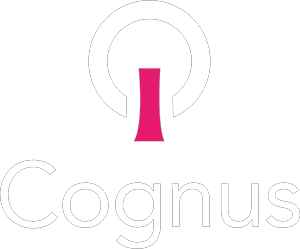Below are some of the terminology that you may hear or read as a parent working with educational services.
We hope this is helpful to start you on your own learning journey as we work together to support your child.
| Annual Review | A meeting that takes place at least once a year to look at the details of a child’s Education, Health and Care Plan, to record the child’s progress and plan for the year ahead. |
| Autistic Spectrum Difference (ASD) | A social communication difference. |
| CAMHS | Children and Adolescent Mental Health Service. |
| Child Looked After (CLA) | A child who is looked after by the Local Authority. |
| Code of Practice (COP) | A guide for Local Education Authorities, parents and schools about how help should be given to children with Special Educational Needs/Disabilities. Local Authorities, schools and other settings must have regard to the code. |
| Designated Teacher (DT) | The statutory role of lead teacher supporting the education of children looked after in schools. |
| Educational Health and Care (EHC) Plans | A document which records the outcome of a statutory assessment of a child/young person’s needs and sets out longer term aspirational outcomes for a child or young person aged between 0 and 25, as well as any support required in the areas of Education, Health and Social Care. Not all statutory assessments give rise to an EHC plan. |
| Educational Psychologist (EP or Ed-Psych) | Educational Psychologists advise schools on how best to provide for the child and write reports to support EHCP applications. |
| Education other than at school (EOTAS) | All forms of education that take place outside of the formal school environment. |
| Elective Home Education (EHE) | Parental decision to provide education for their children themselves at home, instead of sending them to school. |
| Early Years Foundation Stage (EYFS) | Education key stage from age 2 to end of reception school year. |
| Fixed Term Exclusion (FTE) | Where a child is excluded from school by the Headteacher for a set number of days up to 5 days. |
| Learning Support Assistant (LSA) | A person employed by the school to provide support in the classroom or undertake specific work with a child or group of children. They work under the direction of the class teacher. Sometimes, they will work with children with learning difficulties and sometimes with the rest of the class to free up time for the classroom teacher to work with the children with learning difficulties. |
| Occupational Therapist (OT) | A person trained to provide assessment, treatment and rehabilitation for children with physical difficulties. They are able to give schools advice on programmes of support, and to advise about suitable equipment and the provision of other facilities. |
| Permanent Exclusion (Perm Ex / PEX) | Where a child is excluded from attending a school by the Headteacher on a permanent basis. |
| Personal Education Plan (PEP) | The document arising from A termly meeting to ensure effective educational planning is in place for a Child Looked After. |
| Portage Worker | A person who works in partnership with the parents of children under five with developmental delay to promote all aspects of their children’s development through activities in the home. |
| Pupil Premium (PP) | Funding provided to schools to support the education of disadvantaged children. |
| Pupil Premium Plus (PPP) | Funding provided to a Virtual School or school to support education of Children Looked After and Previously Looked After. |
| Sutton Information, Advice and Support Service (SIASS) | A free impartial, confidential service that provides accurate information, advice and support about education, health and social care for children, young people and their parents / carers. |
| SEN Support / IEP/ Individual Education Plan | A detailed learning programme, with short-term targets, designed to help the child or young person make progress at school/college. It should be reviewed termly with the child and their parents or young person. |
| Special Educational Needs Co-ordinator (SENCO) | The teacher who has the responsibility for co-ordinating the special educational needs provision within a school or setting. |
| Special Educational Needs (SEN) | A child has special educational needs if he or she or them has learning difficulties or disabilities that make it harder for him or her or them to learn than most other children of about the same age. |
| Speech and Language Therapy (SALT) | Speech and Language Therapists are trained to assess, diagnose, manage and treat speech, language, voice and fluency disorders. |
| Statement of SEN | Old name for a simpler version of an EHCP (before Sept 2014) |
